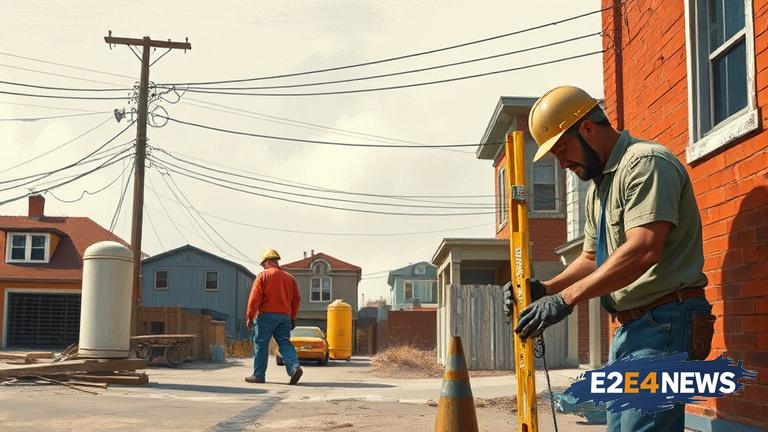The United States is undergoing a significant transformation, with a growing emphasis on rebuilding and revitalizing communities. At the forefront of this movement are skilled trades, which are playing a vital role in driving economic growth, creating jobs, and restoring infrastructure. From construction and manufacturing to healthcare and technology, skilled trades are in high demand, offering individuals a range of rewarding and lucrative career opportunities. By pursuing a career in skilled trades, individuals can gain the skills and knowledge needed to succeed in a rapidly changing job market. Moreover, skilled trades are helping to revitalize communities, with projects such as urban renewal initiatives, infrastructure development, and historic preservation. These efforts not only improve the aesthetic appeal of communities but also enhance the quality of life for residents, making them more attractive to businesses, tourists, and new residents. Skilled trades are also driving innovation, with advancements in fields such as renewable energy, sustainable building, and advanced manufacturing. As the demand for skilled trades continues to grow, educational institutions and training programs are adapting to meet the needs of students and employers. This includes the development of apprenticeships, vocational training, and certification programs, which provide individuals with the skills and credentials needed to succeed in their chosen trade. Furthermore, skilled trades are helping to address social and economic challenges, such as poverty, inequality, and lack of access to education and job opportunities. By providing individuals with the skills and knowledge needed to secure well-paying jobs, skilled trades are helping to reduce unemployment, increase economic mobility, and improve overall well-being. In addition, skilled trades are promoting community engagement and social responsibility, with many tradespeople involved in volunteer work, mentorship programs, and community development initiatives. The impact of skilled trades on community rebuilding is being felt across America, from small towns to major cities. For example, in Detroit, Michigan, skilled trades are playing a key role in the city’s revitalization efforts, with projects such as the redevelopment of the riverfront and the restoration of historic buildings. Similarly, in New Orleans, Louisiana, skilled trades are helping to rebuild and restore communities damaged by Hurricane Katrina, with a focus on sustainable building and community development. The benefits of skilled trades extend beyond the individual and community level, with a positive impact on the national economy. According to the Bureau of Labor Statistics, employment of skilled trades such as electricians, plumbers, and carpenters is projected to grow 8% from 2020 to 2030, faster than the average for all occupations. This growth is driven by increasing demand for skilled trades in industries such as construction, manufacturing, and healthcare. In conclusion, skilled trades are a vital component of America’s rebuilding efforts, offering individuals a range of rewarding and lucrative career opportunities while driving economic growth, community development, and social responsibility. As the demand for skilled trades continues to grow, it is essential that educational institutions, training programs, and employers work together to provide individuals with the skills and knowledge needed to succeed in their chosen trade. By doing so, we can ensure that skilled trades continue to play a vital role in rebuilding and revitalizing communities across America, driving economic growth, and improving the quality of life for residents.





